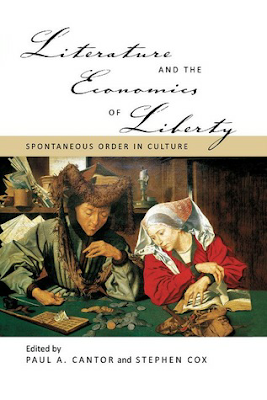An excerpt from, "A Brief Intellectual Biography" (Source: paulcantor.io):
Meanwhile, Cantor had been developing another interest—economics, specifically of the Austrian School, whose chief representatives were Ludwig von Mises and Friedrich Hayek—the great champions of the free market and classical liberalism in the twentieth century. Cantor’s brother Donald introduced him to this material, having learned about Mises from Sylvester Petro, one of his professors at NYU Law School. Cantor read many of Mises’s books, including his magnum opus Human Action, while still in high school, and some of Hayek’s works as well. Cantor was deeply impressed by Mises’ work—its axiomatic nature appealed to his inner Euclid. He and a friend, Alan Udoff, took the unusual step of calling Mises at his Manhattan apartment. This led to a meeting with Mises and his inviting them to attend his legendary seminar at the NYU Graduate School of Business Research. Cantor and Udoff regularly attended two semesters of the Mises seminar in fall 1961 and spring 1962 (Cantor’s senior year in high school). The experience of watching a great teacher like Mises in action was formative for Cantor.
Between attending this seminar and reading many books by Mises and Hayek, Cantor got a solid grounding in Austrian economics that fundamentally shaped his thinking. Coming out of high school, Cantor did not immediately pursue his interest in Austrian economics, but it never left him. In 1992, he submitted a paper on Thomas Mann and the German hyperinflation of the 1920s to an essay contest sponsored by the Mises Institute for its tenth anniversary. Cantor was one of the contest winners, thus beginning a long and productive association with the Mises Institute, which led to his attempt to apply Austrian economics to understanding literature, especially in Literature and the Economics of Liberty (co-edited with Stephen Cox) and his lecture series “Commerce and Culture.” Although Cantor found Austrian economics invaluable in understanding such phenomena as the serialization of the novel in 19th-century Britain, he has never thought of it as providing the master key to understanding all literary issues. Rather, he restricts his use of Austrian principles to specific questions of the relationship of literature to economics.
Video Title: Author Paul Cantor on The Economics of Literature. Source: ReasonTV. Date Published: October 8, 2010. Description:
Paul Cantor, professor of English at the University of Virginia, is an anomaly in world of literary criticism and the study of popular culture. While many academics employ an economic approach to the study of literature, they are invariably informed by Marxist critiques. Cantor, who attended the New York lectures of Ludwig von Mises as a teenager, argues that there is much to be learned from a pro-capitalist reading of literature. In August, Cantor sat down with Reason senior editor Michael C. Moynihan to discuss Literature and the Economics of Liberty, a new book of essays he edited with Stephen Cox, that looks at the work of Walt Whitman, Willa Cather, H.G. Wells, and others through the prism of Austrian economics.
